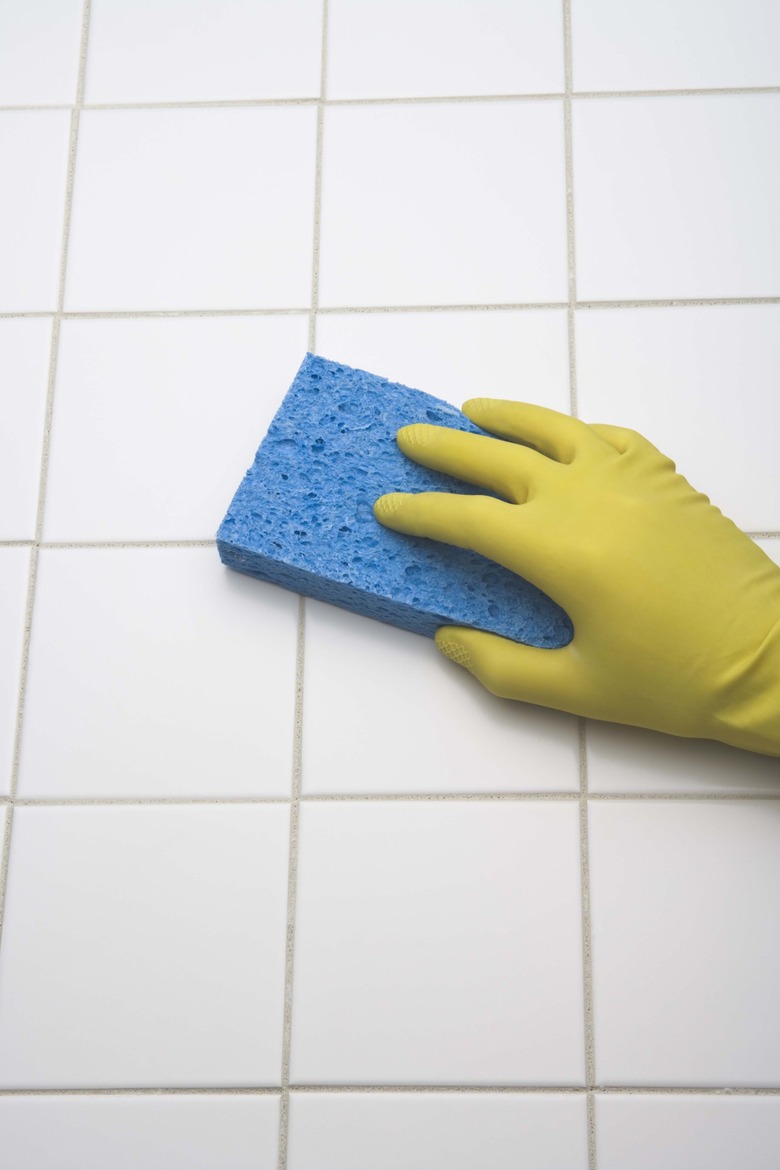How To Get Dog Urine Stains Off Ceramic Tile
We may receive a commission on purchases made from links.
Cuteness may earn compensation through affiliate links in this article.
Dog urine will stain and place a scent on any surface if left for an extended period of time. Luckily, ceramic tile is much easier to clean than carpet and fabric surfaces, providing you get to the urine quickly. The urine will wipe off the tile surface and, with a little effort, come free from the grout surface. Use natural methods and commercial products to neutralize the scent and clean the urine to prevent future marking on the spot.
Wipe up fresh urine
Wipe up fresh urine
Catch your dog in the act and clean the urine immediately to prevent urine from staining tile or grout. Lay paper towels on the urine and lightly blot to absorb the liquid. Do not rub the urine into the tile; focus on absorption.
Prevent odors from settling into cracks, small chips or grout by using a urine-deodorizing cleaning wipe after all the urine is absorbed. PL360 Fragrance Free Multi-Surface Cleaning Wipes use a plant-based formula to neutralize odors on tiles and other hard surfaces. The unscented wipes are pet-safe, so you can use them on food bowls, toys, and other items your dog comes in contact with.
Make sure to clean the area thoroughly. The pH of urine changes from 6 to 10-12 as it dries, according to The Grout Medic. This means that it can etch fine lines or tiny chips into your ceramic tile or grout that will allow deeper penetration of the urine and retain its smell.
Remove stains from tile surfaces
Remove stains from tile surfaces
Soak a towel with white vinegar and lay it on the stain for 10 minutes. Do not substitute another type of vinegar, such as balsamic or cider vinegar as they can stain. The vinegar acts as a scent neutralizer. Also, pour a little extra on the grout before laying the towel down. The towel will release the vinegar while preventing it from flowing off the spot. After several minutes, wipe the tile down with a towel to remove any sticky urine stains that the initial blotting did not absorb. Repeat the process with hydrogen peroxide to disinfect the stain.
Clean grout surfaces
Clean grout surfaces
Grout is the big trouble spot with urine. The material is moderately porous and old urine will work into the cracks. Combine baking soda with water or vinegar to create a paste. Rub the paste on the grout and scrub with an old toothbrush until the grout is clean. Pour water over the grout and wipe down with a towel to finish the process.
Use commercial cleaners
Use commercial cleaners
Enzymatic cleaners are effective for difficult urine stains and odors. The enzymes are living organisms that actually react with the urine to break down and chemically process the odor and stain. Enzymatic cleaners are often citrus-based and are an effective last resort for stains outlasting common household treatments.
ECOS for Pets! Pet Stain & Odor Remover uses plant-based ingredients to lift out stains and neutralize pet odors. The product is also effective for other household stains that can be challenging, including coffee, grass, and wine.
Prevent future marking
Prevent future marking
Regular marking behavior is an issue with many dogs. Thorough cleaning will remove the scent and reduce the odds of future marking. Seal the grout to prevent it from absorbing urine from any future pet accidents.
Spay or neuter the dog to prevent territorial and dominance behaviors. Monitor your dog's behavior and put him outside regularly to encourage urination outdoors.
If your dog can't control his bladder due to old age or disease, train him to use a potty pad or indoor dog relief station. * Dog diapers are another option for dogs with complete loss of bladder control.
